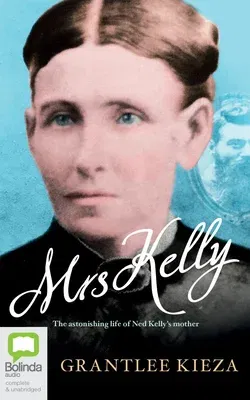While we know much about the iconic outlaw Ned Kelly, his mother Ellen
Kelly has been largely overlooked by Australian writers and historians
... until now.
When Ned Kelly's mother, Ellen, arrived in Melbourne in 1841 aged nine,
British convict ships were still dumping their unhappy cargo in what was
then known as the colony of New South Wales. By the time she died aged
91 in 1923, having outlived seven of her 12 children, motor cars plied
the highway near her bush home north of Melbourne, and Australia was a
modern, sovereign nation.
Like so many pioneering women, Ellen, the wife of a convict, led a life
of great hardship. Born in Ireland during a time of entrenched poverty
and sectarian violence, she was a mother of seven when her husband died
after months in a police lock-up. She lived through famine and drought,
watched her babies die, listened through the prison wall while her
eldest son was hanged and saw the charred remains of another of her
children who'd died in a shoot-out with police. One son became
Australia's most infamous (and ultimately most celebrated) outlaw;
another became a highly decorated policeman, an honorary member of the
Royal Canadian Mounted Police and a worldwide star on the rodeo circuit.
Through it all, 'the notorious Mrs Kelly', as she was dubbed by
Victoria's Assistant Police Commissioner, survived as best she could,
like so many pioneering women of the time.
By bestselling biographer Grantlee Kieza, Mrs Kelly is the astonishing
story of one of Australia's most notorious women and her wild family,
but it's also the story of the making of Australia, from struggling
colony and backwater to modern nation.

